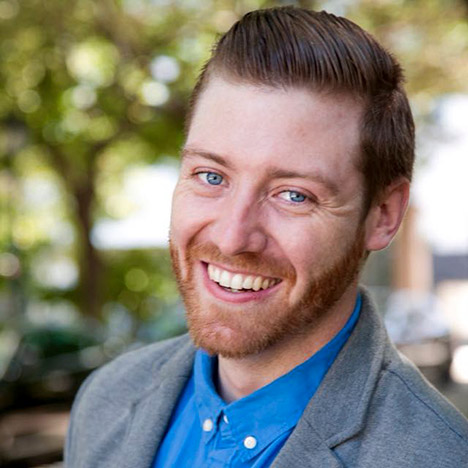
2017 Dorothea Lange Fellow
Kyle Merrit Ludowitz
Kyle Ludowitz was an undergraduate at Evergreen College when, in a moment, his life snapped into focus.
“I was watching the Iraq war happening, and I was so curious to understand what was going on,” he recounts. “Part of me realized that to effect change, I had to experience things for myself. I got into conflict and war as a way to understand people and what drives them to that kind of violence — and to be able to bring that home and help people understand the consequences of our actions.”
Witnessing the work of a photojournalist who covered conflict and war, It felt like a light switch went off says Ludowitz. “I talked to the photojournalist who inspired me and he said, ‘Just go and do it.’ “ He bought a used Nikon and a one-way ticket to Palestine, and has never looked back.
Now in his second year as a photojournalism student at UC Berkeley’s Graduate School of Journalism, Ludowitz is this year’s winner of the Dorothea Lange Fellowship at Berkeley, which honors the memory of a giant of American documentary photography. Lange was best-known for her searing black-and-white images of migrant workers during the Great Depression.
The photos Ludowitz took in the West Bank, on that first trip, were the ones that won him the Lange prize.
When he got to Palestine, he spoke no Arabic and knew no one. He was teaching himself to use his Nikon.
“I walked into a village and found someone who spoke English and explained what I wanted to do — and people just started housing me,” he says. He ended up spending six months, coming home only “because I ran out of money.”
That was 2009-10. Since then he’s traveled to Egypt, Jordan, Turkey and Syria. He was in Aleppo for the 2014 bombing campaigns. He’s also photographed natural disasters in Thailand and the Myanmar borderlands where land mines are an ongoing danger. Along the way, he got his undergraduate degree and will wrap up grad school this spring. He’s 27 and lives in Oakland.
With his Lange fellowship award, Ludowitz plans to tell the tale — photographically — of the ongoing and divisive issue of immigration along the U.S. border with Mexico. He plans to chronicle stories told less often, including the lives of those who try to prevent immigrants from entering the country, including federal agents and militias.
“I don’t think we see their story at all,” he says. “People in the Berkeley liberal bubble are more interested in hearing the immigrant stories. I want to tell the story from the other side, that shows law enforcement people who think they’re doing the best job they can for their country.“
He also wants to “show changes along the border with Trump and his policies and show them in real time. When his policies come into effect, I will be on the border.”
In celebration of his Lange fellowship, eight of Ludowitz’s photos will be exhibited in the hallway outside journalism dean Ed Wasserman’s office in North Gate Hall from Feb. 1 through May 15.
In his line of work, Ludowitz often finds himself in dangerous situations — in Aleppo during the bombings, in the West Bank when live rounds were being fired at protesters.
But nowhere has he found himself in more jeopardy than covering a protest the night after the election of Donald Trump in Oakland. Attacked by protesters, Ludowitz ended up in the emergency room with a fractured cheekbone. And both of his cameras were smashed.
An Indiegogo campaign is raising money to help him replace his cameras — the tools of his trade.
